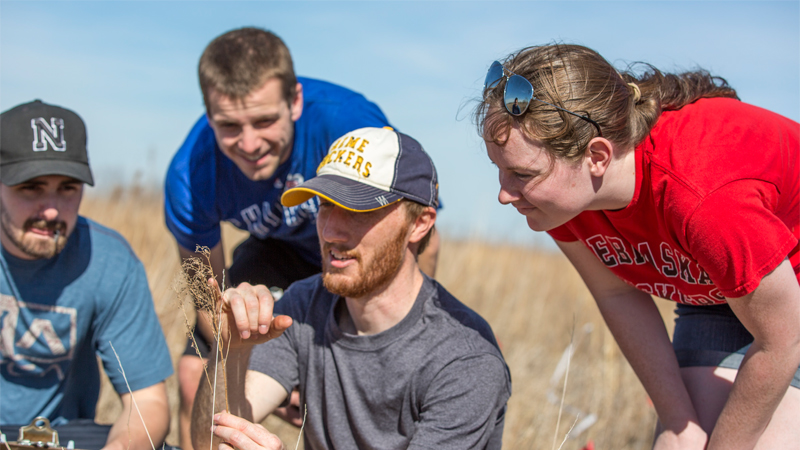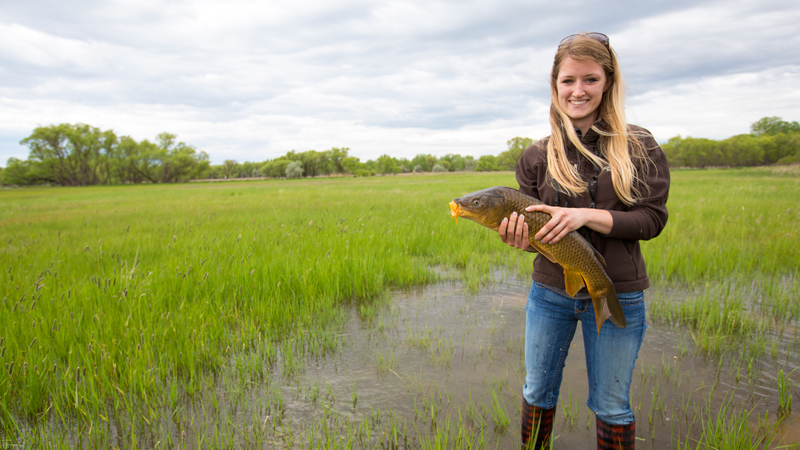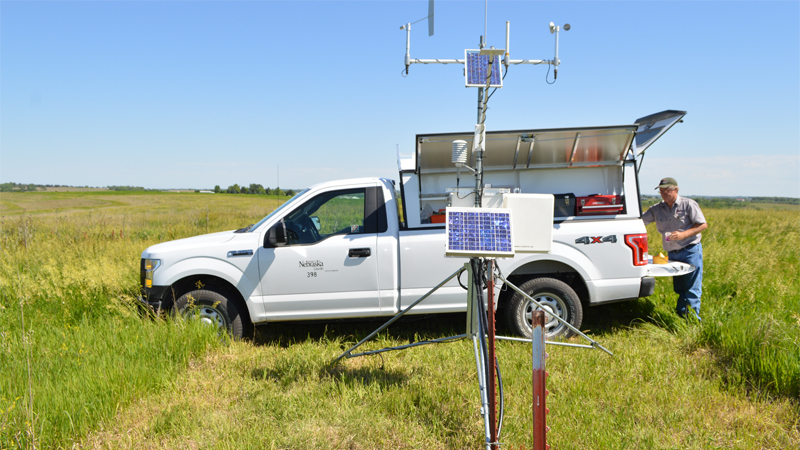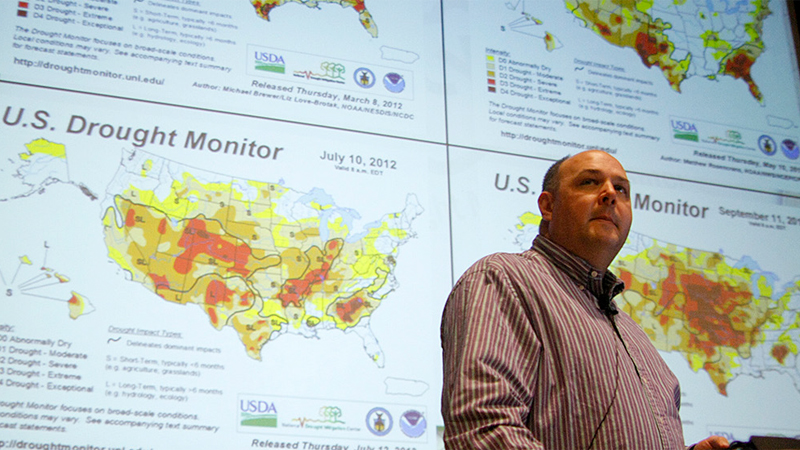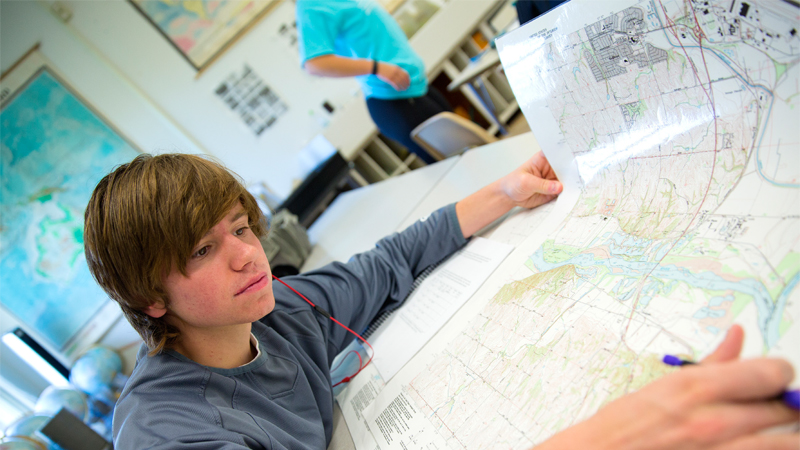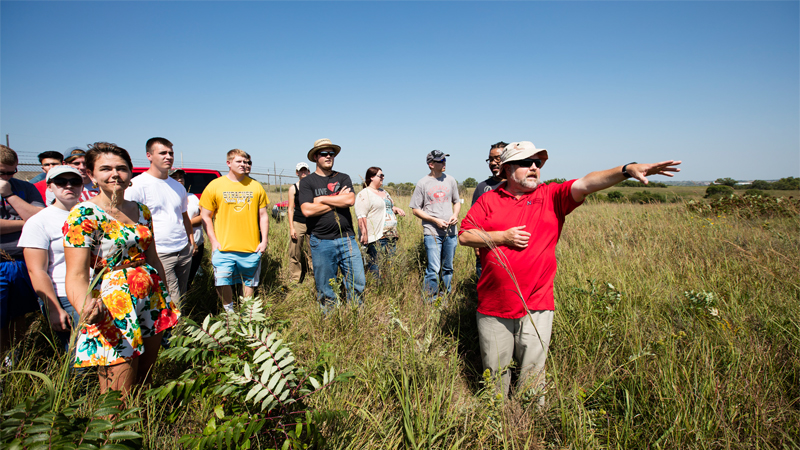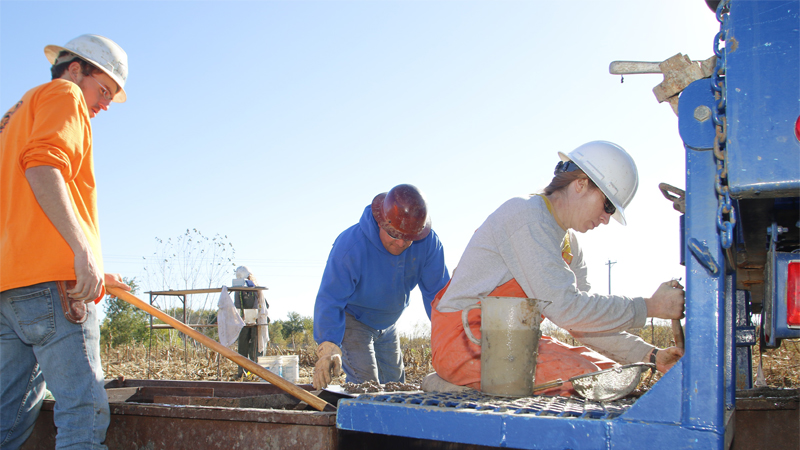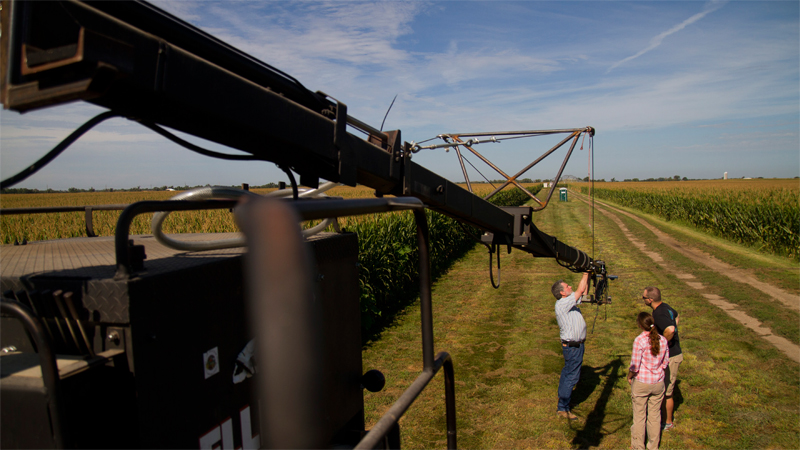Natural Resource Sciences Graduate Program Specializations
Adaptive Management
The Adaptive Management specialization is designed to provide a rigorous, focused graduate program that draws on faculty expertise in both adaptive management and structured decision making.
Applied Ecology
The Applied Ecology specialization focus on the interactions among ecosystem components. This specialization is designed for students interested in applying ecological principles to the management of terrestrial and aquatic ecosystems.
Bio-Atmospheric Interactions
The Bio-Atmospheric Interactions specialization provides students with a unique learning environment to promote an understanding of the interactions between the atmosphere and the biosphere. This specialization encourages cooperation among the community of scientists within the bio-atmospheric research area.
Climate Assessment and Impacts
The Climate Assessment and Impacts specialization provides students with unique opportunities to emphasize
- Learning methodologies to assess climate variability and change and their impacts on society and natural resource systems
- Synthesize and evaluate complex climate-based issues and their interrelationships with natural resources, management, and society. These issues include food and water security, natural hazard management, changing frequency and severity of extreme climate events, environmental degradation, climate-crop interactions, carbon and water gas exchanges, and deforestation.
Geographic Information Systems
The Geographic Information Systems (GIS) integrate hardware, software, and data for capturing, managing, analyzing, and displaying virtually all forms of spatial data. GIS allows us to view, understand, explore, interpret, and visualize data in many ways that reveal relationships, patterns, and trends. GIS technology cuts across many disciplines and applications ranging from the medical profession to natural resource management.
Human Dimensions
The Human Dimensions specialization seeks to improve the stewardship of ecosystems and natural resources by understanding and affecting people's thought and behavior toward natural and managed environments.
Hydrological Sciences
The Hydrological Sciences program, a specialization within the Natural Resource Sciences graduate program, aims to train the next generation of scientists studying the hydrologic cycle, its components and processes, and its complex interactions with human societies. Faculty and students in this specialization explore a broad range of hydrological topics.
Remote Sensing
The Remote Sensing refers to any technique whereby information about objects and the environment is obtained from a distance. The Remote Sensing specialization focuses on the collection and analysis of remotely sensed data acquired through sensors deployed:
- at close range in the lab
- operated in the field on various field vehicles and platforms from aircraft and satellites.
Questions ?

Brooke Mott
Recruitment and Retention Coordinator - SNR Graduate Programs
- Address
-
School of Natural Resources
911 South Hardin Hall
3310 Holdredge Street
Lincoln, NE 68583-0989 US - Phone
- 402-472-5355
- bmott2@unl.edu
